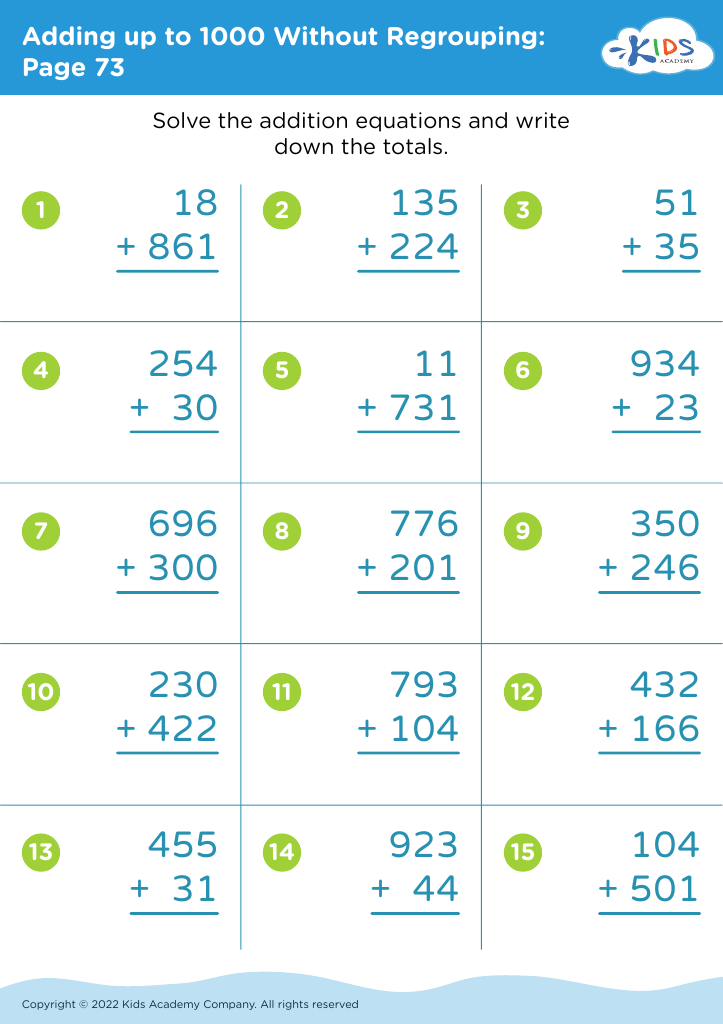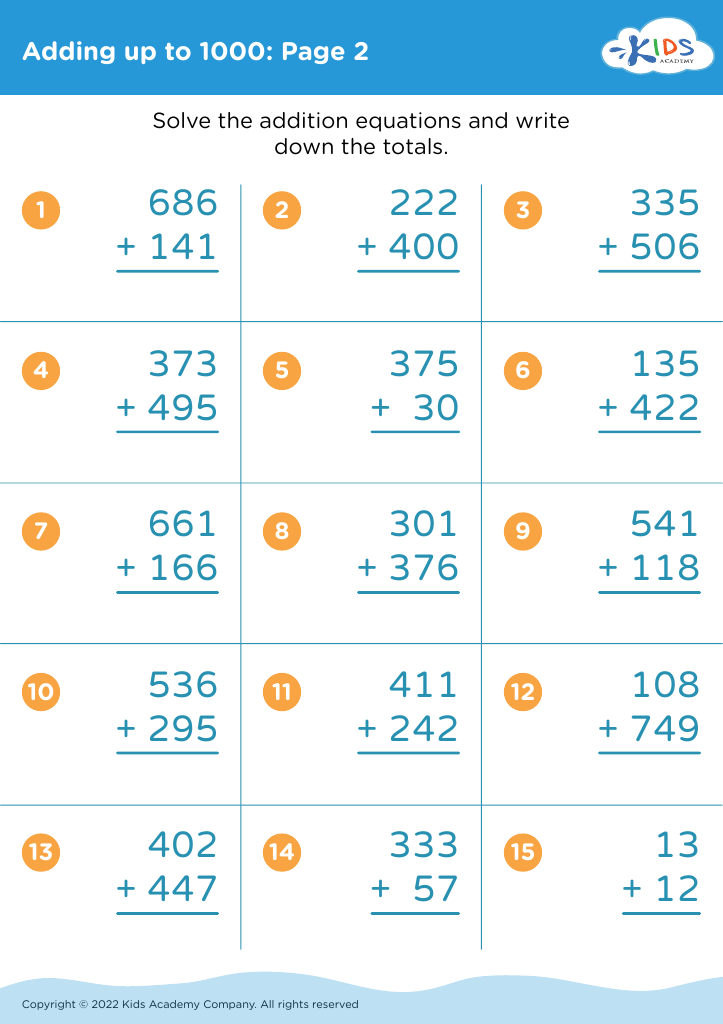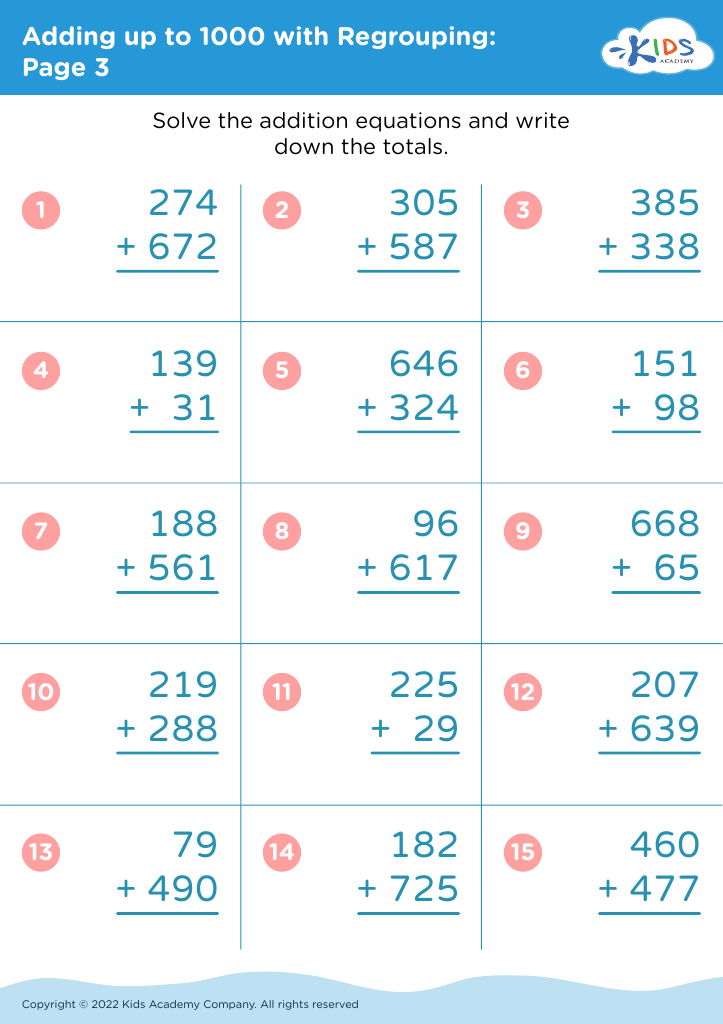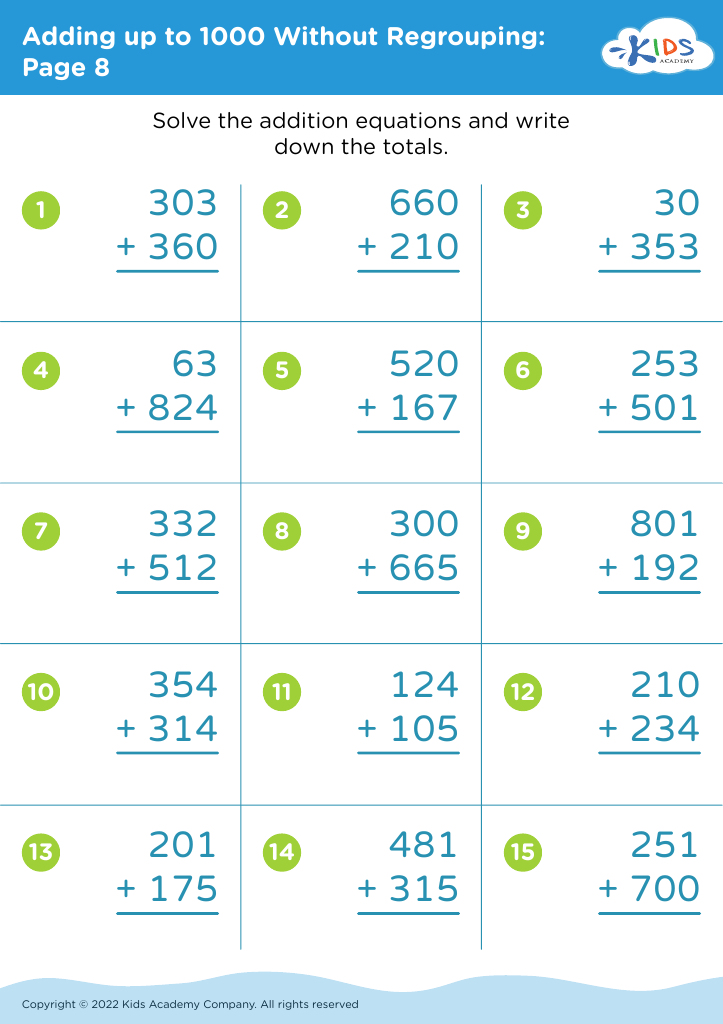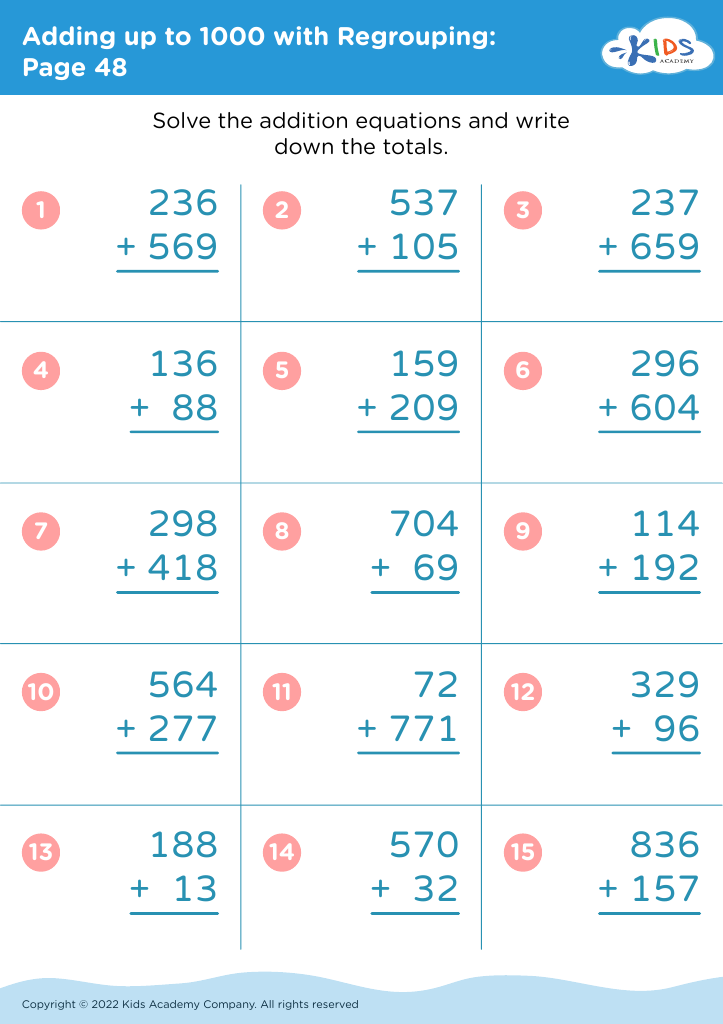Enhance comprehension Adding up to 1000 Worksheets for Ages 6-7
7 filtered results
-
From - To
Unlock your child's potential with our "Enhance Comprehension: Adding Up to 1000" worksheets, specially designed for ages 6-7. These engaging activities go beyond basic math skills, helping young learners grasp important concepts through fun and interactive exercises. Your child will develop a strong understanding of addition, including strategies for solving problems, enhancing critical thinking, and improving overall comprehension. Each worksheet fosters a love for learning, encouraging kids to explore numbers and become confident problem solvers. Perfect for home or classroom settings, these resources support young mathematicians on their journey to mastery. Start enhancing your child's comprehension today!
Enhancing comprehension in young learners, especially those aged 6-7, is crucial for their overall academic success and personal development. At this age, children are transitioning from learning to read to reading to learn. If they struggle to understand what they’re reading, their ability to grasp concepts in all subjects may suffer. Boosting comprehension skills helps them engage more meaningfully with texts, fostering a love for reading and learning.
For parents and teachers, supporting comprehension means equipping children with tools to analyze and relate to stories and information. This lays a foundation for critical thinking, reasoning, and problem-solving. Activities that encourage questioning, predicting, and summarizing aid in cultivating these skills, enriching their educational experience.
Moreover, strong comprehension abilities can enhance communication skills. Children who comprehend well can articulate their thoughts and insights, creating better interactions with peers and adults.
As educators and caregivers notice progress in comprehension, they also witness increased confidence and motivation in children. This ripple effect encourages a lifelong love for learning, ultimately shaping well-rounded individuals prepared to navigate future academic challenges. In essence, prioritizing comprehension at this critical developmental stage is a vital investment in a child's future.
